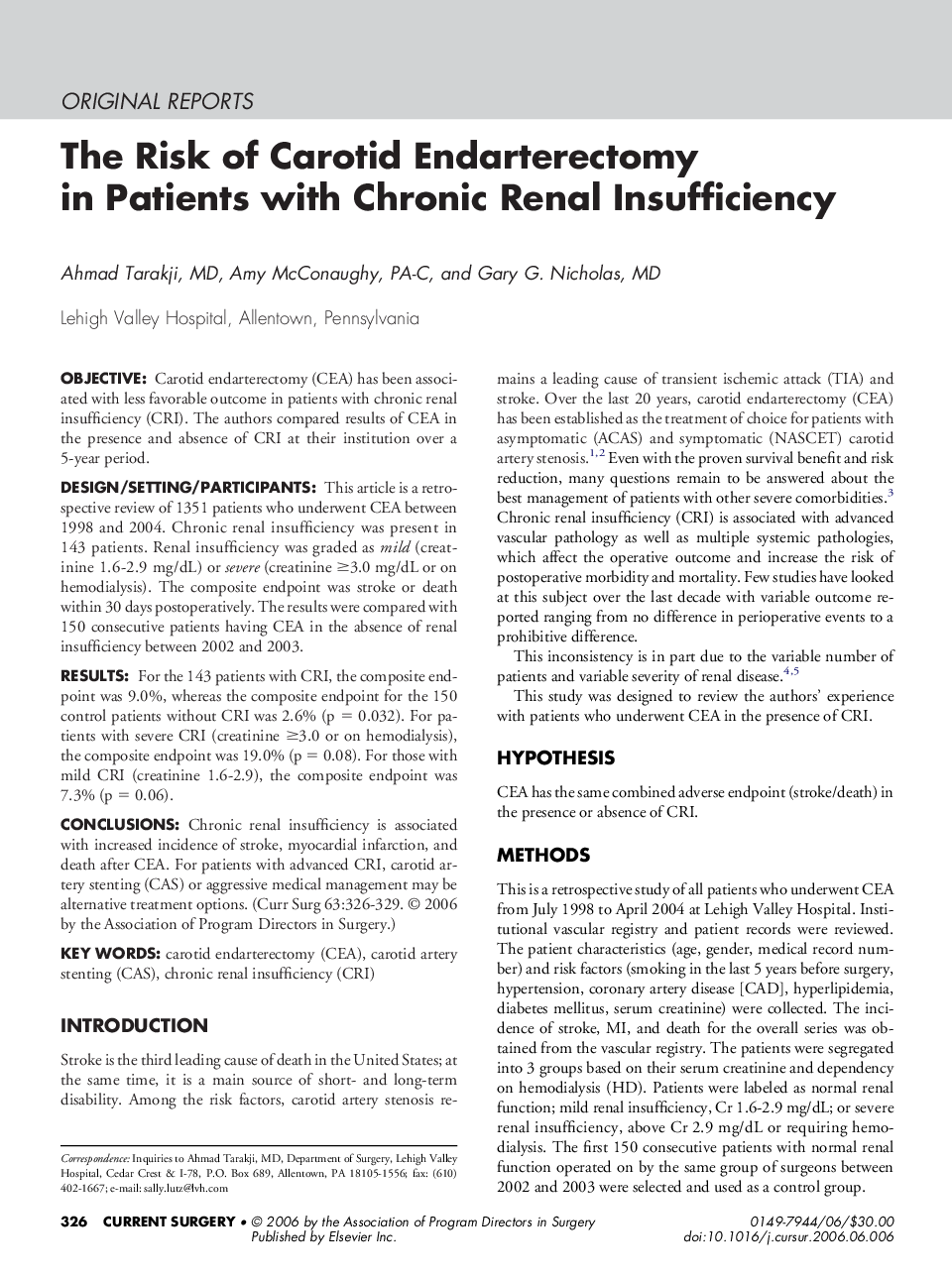| Article ID | Journal | Published Year | Pages | File Type |
|---|---|---|---|---|
| 4284349 | Current Surgery | 2006 | 4 Pages |
ObjectiveCarotid endarterectomy (CEA) has been associated with less favorable outcome in patients with chronic renal insufficiency (CRI). The authors compared results of CEA in the presence and absence of CRI at their institution over a 5-year period.Design/setting/participantsThis article is a retrospective review of 1351 patients who underwent CEA between 1998 and 2004. Chronic renal insufficiency was present in 143 patients. Renal insufficiency was graded as mild (creatinine 1.6-2.9 mg/dL) or severe (creatinine ≥3.0 mg/dL or on hemodialysis). The composite endpoint was stroke or death within 30 days postoperatively. The results were compared with 150 consecutive patients having CEA in the absence of renal insufficiency between 2002 and 2003.ResultsFor the 143 patients with CRI, the composite endpoint was 9.0%, whereas the composite endpoint for the 150 control patients without CRI was 2.6% (p = 0.032). For patients with severe CRI (creatinine ≥3.0 or on hemodialysis), the composite endpoint was 19.0% (p = 0.08). For those with mild CRI (creatinine 1.6-2.9), the composite endpoint was 7.3% (p = 0.06).ConclusionsChronic renal insufficiency is associated with increased incidence of stroke, myocardial infarction, and death after CEA. For patients with advanced CRI, carotid artery stenting (CAS) or aggressive medical management may be alternative treatment options.
